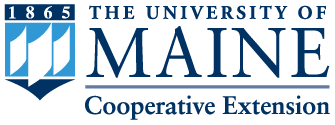Bulletin #2432, Guide to Veteran-to-Farmer Training Pilot Program Resources in Maine
By Tori Jackson, Associate Professor of Agriculture and Natural Resources, University of Maine Cooperative Extension and Stephanie Gilbert, Farm Viability and Farmland Protection Specialist, Maine Department of Agriculture, Conservation and Forestry
For information about UMaine Extension programs and resources, visit extension.umaine.edu.
Find more of our publications and books at extension.umaine.edu/publications/.
In 2013, the Maine State Legislature passed LD 409, a “Resolve to Establish a Veteran-to-Farmer Training Pilot Program,” the purpose of which was to capture the richness of opportunities in Maine for veterans to receive comprehensive training and education on careers in the agriculture.
As a next step, the Maine Department of Agriculture, Conservation and Forestry, and the University of Maine Cooperative Extension have created this guide to agricultural, silvicultural, and other natural resource training programs that are currently approved for the use of GI Bill benefits at 10 Maine colleges and universities.
If you are seeking civilian employment in any of these fields this fact sheet will serve as a guide as it has been developed in consultation with and reviewed by the Maine State Approving Agency for Veteran Education. For more information about the various GI Bill programs or to apply for benefits, please visit the Education and Training page of the U.S. Department of Veterans Affairs (VA) website.
Sustainable Agriculture
Sustainable Agriculture is the creation of food, fiber, plant, and animal products using farming and production techniques that protect human and animal welfare and the environment.
Students pursuing a degree in sustainable agriculture typically learn: crop production practices that improve crop quality and protect soil health; livestock breeding and management techniques; and essential business planning and market development skills.
Graduates often become farm owners/operators themselves, or work for commercial livestock farms, commodity or specialty crop operations, seed production companies, or public education, policy, and research institutions.
Sample Coursework
- Introduction to Food and Nutrition
- Livestock and Pasture Management
- Agricultural Marketing
- Cropping Systems
Approved Programs
- Kennebec Valley Community College, Fairfield, (A.A.S.)
- Unity College, Unity, (B.S.)
- The University of Maine, Orono (B.S.)
Technical Assistance
The Beginning Farmer Resource Network is a coalition of Maine agriculture agencies and organizations working together to connect aspiring, beginning, and transitioning farmers to resources for farm business success. If you want to start farming, or you’ve been farming for 10 years or less, please visit the Beginning Farmer Resource Network of Maine website.
For information on veteran farmers throughout the United States and in Maine, please visit the Farmer Veteran Coalition website.
Forestry
Forestry is an applied science that involves conserving and managing forest ecosystems and requires a broad education in forest conditions, forest management, and manufacturing processes.
Students pursuing a degree in forestry and forestry management typically learn: how to manage efficient and environmentally acceptable forest growth; strategies for harvesting, extraction, and transportation of timber for manufacturing; and how to balance market demand for forest-based products with sustainable practices.
Graduates work for large private landholders, become industry consultants, or work for local, state, and federal agencies such as the Maine Forest Service or Bureau of Parks and Lands, and US Forest Service and National Park Service, or any other non-governmental natural resource organizations.
Sample Coursework
- Forest Land Navigation and Outdoor Preparedness
- Geomatics, Coordinate Geometry, and GPS
- Forest Inventory and Analysis
- Silviculture and Forest Management
Approved Programs
- Unity College, Unity (B.S.)
- The University of Maine, Orono (B.S., M.F., Ph.D.)
- University of Maine, Fort Kent (A.S.)
Horticulture
Horticulture is an applied science that involves managing ornamental, woody, fruit-bearing, and herbaceous plants in greenhouses, nurseries, and residential or public landscapes.
Students pursuing a degree in horticulture typically learn the basics of plant and soil science, and landscape design theory, before gaining hands-on experience in landscape design and/or management; sustainable plant production and maintenance; greenhouse management; “green industry” business management, and other related fields.
Graduates work as plant breeders, arborists, designers or managers for greenhouse, plant nursery, arborist, and turf management companies, or found their own companies or consulting services.
Sample Coursework
- Soils and Soil Fertility
- Small Business Economics and Management
- Plant Propagation and Management
Approved Programs
- Southern Maine Community College, S. Portland (A.A.S.)
- The University of Maine, Orono (Certificate Programs, M.S., Ph.D.)
Environmental Science and Environmental Studies
Environmental Science is the study of the environment and the physical, biological, and geographic systems it contains to address environmental problems. Students typically study biology, chemistry, ecology, physics, geology, soil science, atmospheric science, and geography to address environmental problems.
Environmental Studies investigates the interaction of humans with the natural environment and the built environment. Students typically investigate ecology, environmental science, marine science, ethics, policy, law, economics, land use planning, pollution control, and natural resource management.
Graduates work in environmental regulation, urban or rural planning, natural resource conservation, land, and natural resource management, public health, public policy, and law.
Sample Coursework
- Geology and Soil Science
- Principles of Microeconomics
- Environmental Policy
- Human Rights and Indigenous Peoples
- Oceanography
Approved Programs
- Bates College, Lewiston (B.A.)
- Colby College, Waterville (B.A.)
- Husson University, Bangor (B.S.)
- Unity College, Unity (B.A., B.S., A.S.)
- The University of Maine, Orono (B.A., B.S., M.S., Ph.D.)
- University of Maine, Fort Kent (B.S.)
- University of Maine, Machias (B.A.)
- University of New England, Biddeford (B.S.)
- University of Southern Maine, Portland, Gorham and Lewiston (Certificate Programs, B.A., B.S.)
Wildlife and Fisheries Sciences and Management
Wildlife and Fisheries Sciences and Management programs focus on wild species health, diversity, habitat, and population dynamics.
Nearly all programs utilize an interdisciplinary approach, melding classroom education with hands-on experiential learning in the field. Students begin with basic sciences, mathematics, social science, communications, and natural resource management, before specializing in the biology, ecology or management of any one species or ecosystem.
Graduates typically pursue graduate degrees for careers in wildlife biology; fisheries biology; wildlife ecology; wildlife research and education; conservation biology; wildlife management; game management; zoo management; and related fields.
Sample Coursework
- Wildlife Ecology
- Population and Community Ecology
- Natural Resource Law
- Habitat Assessment and Management
Approved Programs
- Unity College, Unity, (B.S)
- The University of Maine, Orono (B.S., M.S., M.W.C., and Ph.D.)
| This publication is the result of a joint effort by the University of Maine Cooperative Extension and Maine Department of Agriculture, Conservation and Forestry. |
Information in this publication is provided purely for educational purposes. No responsibility is assumed for any problems associated with the use of products or services mentioned. No endorsement of products or companies is intended, nor is criticism of unnamed products or companies implied.
© 2015
Call 800.287.0274 (in Maine), or 207.581.3188, for information on publications and program offerings from University of Maine Cooperative Extension, or visit extension.umaine.edu.
The University of Maine System (the System) is an equal opportunity institution committed to fostering a nondiscriminatory environment and complying with all applicable nondiscrimination laws. Consistent with State and Federal law, the System does not discriminate on the basis of race, color, religion, sex, sexual orientation, transgender status, gender, gender identity or expression, ethnicity, national origin, citizenship status, familial status, ancestry, age, disability (physical or mental), genetic information, pregnancy, or veteran or military status in any aspect of its education, programs and activities, and employment. The System provides reasonable accommodations to qualified individuals with disabilities upon request. If you believe you have experienced discrimination or harassment, you are encouraged to contact the System Office of Equal Opportunity and Title IX Services at 5713 Chadbourne Hall, Room 412, Orono, ME 04469-5713, by calling 207.581.1226, or via TTY at 711 (Maine Relay System). For more information about Title IX or to file a complaint, please contact the UMS Title IX Coordinator at www.maine.edu/title-ix/.



